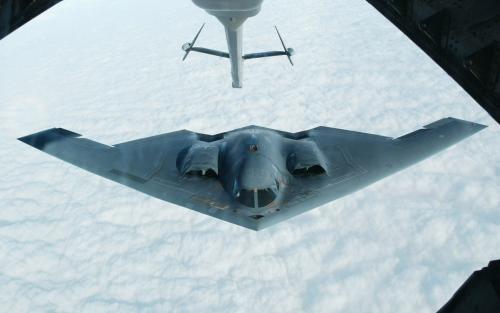Iran’s Foreign Minister Mohammad Javad Zarif remains the Rouhani administration’s rock star. Zarif
When Iran’s president Hassan Rouhani travelled to Muscat last week as part of an effort to ease frictions with the Arab world and the Gulf states in particular, he was accompanied by
There was another cabinet pick that generated a strong buzz, both within Iran and beyond. Like Zarif, Bijan Namdar Zanganeh was well-known among the domestic political elite as well as key international constitutencies. Unlike Zarif,
Zanganeh’s selection, and his own subsequent staffing of key Oil Ministry and corporate positions, suggests that reviving Iran’s battered oil sector is an equally high priority for Iranian decision-makers.
If anything, Zanganeh carried more baggage than Zarif.
Indeed, in his confirmation hearings before the Iranian parliament last August, Zanganeh asserted that his position would be equally significant as that of Zarif in extricating Iran from sanctions and self-imprist osed isolation from the international economy.He was handily confirmed by parliamentarians who demonstrated greater anxiety around prospective ministers’ stances on domestic dissent.
After the revolution, Zanganeh helped found the Jihad-e Sazandegi (Reconstruction Crusade), and led the organization’s efforts to promote rural development and infrastructure building throughout the revolution’s early years and the war with Iraq. He was tapped to take on the energy ministry shortly after the August 1988 cease-fire, as Tehran launched a desperately-needed post-war reconstruction program, and remained in the post through the eight-year presidency of centrist power broker Ali Akbar Hashemi Rafsanjani.
Zanganeh’s stewardship of the Energy Ministry came at a time when war damage to power networks still plunged the capital and other cities into prolonged daily blackouts, and he was credited with rehabilitating domestic power generation capacity, a vital task for the country’s industrial recovery as well as the regime’s popular legitimacy. He became known as a competent minister who could deliver results.
After reformist president Mohammad Khatami won the presidency, Zanganeh shifted over to the oil ministry, where he pursued an ambitious agenda of increasing production, securing foreign investment, and reforming the sector itself. During his tenure, Iran unleashed a barrage of new tenders for upstream activity that attracted interest from all the major European and Asian oil companies. He demonstrated a political savvy, reaching beyond the traditional majors to the national oil companies that were beginning to emerge as major industry players (and whose host governments were perceived as useful diplomatic partners for Iran’s rehabilitation.)
At the time and to a lesser extent today, these policies provoked controversy in a country that had fought a 70-year battle to wrest its own oil resources from the control of foreign companies, but Zanganeh was a vocal and unapologetic advocate. In a 2001 interview with a reformist newspaper, Zanganeh argued that “Iran’s oil industry has two choices: either it wants to be an updated mainstream industry and be present globally, or else this is absolutely not important,” addign that “we opted for the first choice.”
Zanganeh’s leadership of the Oil Ministry came shortly after the intensification of U.S. economic pressure against Iran, through Clinton administration measures that not only banned American investment in Iran but also sought to deter oher foreign investment in Iran’s oil sector. Zanganeh — like most Iranian officials at the time — saw the advantage on Iran’s side, and openly derided American economic pressure as “a joke,” even as he openly agitated for the return of U.S. companies to the Iranian oil sector. Sanctions precluded any U.S. firms from joining the bidding wars for Iranian projects, but during this period several sought to position themselves for a future in in Iran.
In reshaping the petroleum sector, Zanganeh surround himself with a skilled group of technocrats, many of whom have returned to prominence in the oil sector as well as other spots in the Rouhani cabinet.
He proved an able diplomat in the past; through the 1980s until Ahmadinejad’s 2005 election, he played a prominent role in courting international trade and investment. As oil minister during the late 1990s, he played a crucial role in establishing a cooperative relationship with Saudi Arabia in OPEC, which helped both countries navigate the Asian economic crisis and associated declines in oil demand and prices.
Despite some successes, Zanganeh’s tenure at the Oil Ministry proved profoundly controversial within Iran; he emerged as a lightning rod for criticsm and corruption allegations. Ayatollah Ahmad Jannati, then-head of Iran’s Council of Guardians and a scion of Iran’s old-guard conservatives, inveighed publicly against what he described as Oil Ministry embezzlement, and even the reformist-led parliament pressed for greater transparency.
Zanganeh was also saddled with a
Zanganeh has hit the ground running: already his close confidantes have begun previewing a new model .
Zanganeh also publicly released his email address this week in encouraging, perhaps as a
The Brookings Institution is committed to quality, independence, and impact.
We are supported by a diverse array of funders. In line with our values and policies, each Brookings publication represents the sole views of its author(s).




Commentary
In Sanctions Exit Strategy, Iran’s “Second Foreign Minister” Takes Center Stage
March 13, 2014